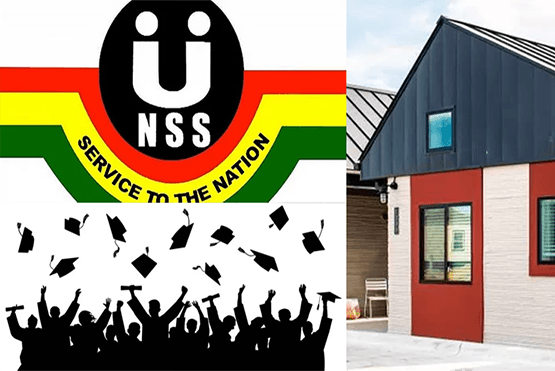In Ghana, the transition from higher education to the working world is marked by a mandatory rite of passage: National Service. A noble initiative aimed at instilling a sense of duty and patriotism among the youth, National Service requires graduates to work for the state for a full year.
However, as the sun rises on the aspirations of these young minds, it casts a shadow over their dreams due to an overlooked challenge – affordable accommodation. The average monthly allowance of Ghs559 barely scratches the surface of the rising tide of rent prices, leaving many graduates grappling with a harsh reality – a future dimmed by a lack of shelter.
Challenges Faced by Young Graduates in the Pursuit of Affordable Accommodation
The Struggle for Affordable Accommodation
Imagine being a fresh-faced graduate, brimming with potential, only to be met with the cruel realization that your meager allowance is a drop in the ocean when it comes to finding a decent place to call home. The bustling city of Accra, a vibrant hub of opportunity, boasts an average rent of Ghs500 for a modest single room. This significant expense alone engulfs the majority of the allowance, leaving little room for other essentials.
The Dilemma of Self-Sustenance
The heart of the problem lies in the expectation that these young graduates, with limited financial means, will shoulder the responsibility of securing their own accommodation. The notion of paying two years’ advance rent, a common practice, seems like an insurmountable hurdle for those just embarking on their professional journey. The burden of scraping together funds for rent, alongside other daily expenses, presents a daunting challenge that leaves many questioning their decision to pursue National Service.
A Dwindling Future
As the dream of contributing to the development of their nation transforms into a daily struggle for survival, the potential of these young graduates risks being extinguished. The inability to secure affordable housing in the location of their service posting forces many to make difficult decisions. Some opt to remain at their family homes, unable to fully immerse themselves in their work, while others are forced to decline their posting altogether, resigning themselves to a future that falls short of their aspirations.
The Resilient Spirit
In the face of adversity, Ghana’s young graduates exhibit remarkable resilience. They navigate a labyrinth of challenges, striving to make ends meet while clinging to the belief that their hard work will eventually lead to a brighter future. Despite the odds stacked against them, they persevere, proving that the human spirit can endure even the harshest of circumstances.
Paving a Path Forward
As we reflect on the struggles faced by Ghana’s young graduates, we are confronted with a crucial question – how much did you pay for accommodation during your National Service? It is not merely a question of monetary value, but an invitation to engage in a dialogue about the urgent need for change. The current system perpetuates a cycle of unfulfilled potential and dimmed prospects. It is incumbent upon us, as a society, to reevaluate and redesign a system that honors the dedication of our young minds and provides them with a fair chance at a promising future.
The time has come to address the accommodation crisis and create an environment where our graduates can flourish without the shackles of financial burden. Only then can we truly nurture the seeds of progress and innovation that lie within these young individuals, ensuring a brighter and more prosperous future for Ghana.





